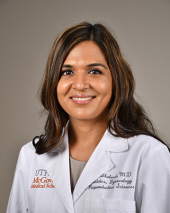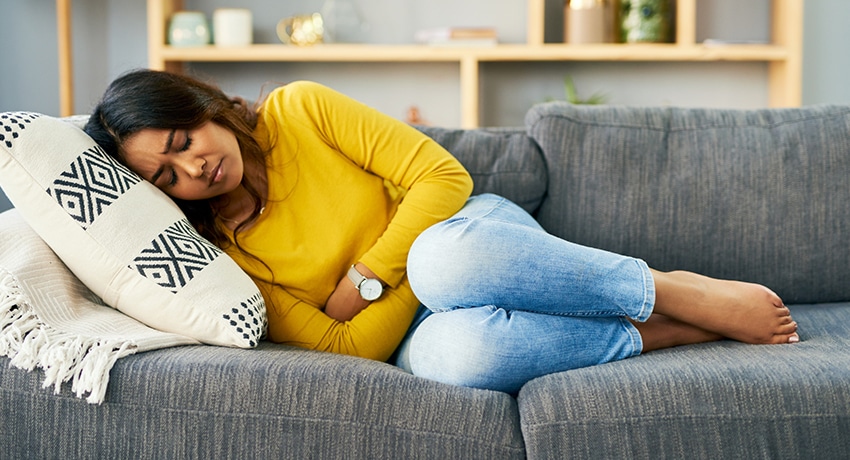Endometriosis affects 1 in 10 females of reproductive age, yet too many girls and women are unaware of this condition, according to Asha B. Bhalwal, MD, OB-GYN with UT Physicians.

“Ten percent of females suffer from endometriosis and have very painful periods. This isn’t necessarily how girls and women are supposed to feel during their period,” Bhalwal said. “Too many go undiagnosed or get diagnosed in the late stages because they’re told it’s just part of their period. They don’t know about endometriosis.”
Endometriosis occurs when endometrial-like tissue grows outside the uterus. Because it grows in the wrong place, the body cannot fully dispel the tissue the way it dispels the endometrial tissue inside the uterus. The trapped tissue irritates and inflames the surrounding healthy tissue during menstruation, leading to chronic pain.
“It can happen very early. Many girls have just been told to take a pain reliever or stay home from school. They live with it for years not knowing something can be medically wrong,” said Bhalwal, assistant professor of obstetrics, gynecology, and reproductive services with McGovern Medical School at UTHealth Houston
In addition to pain, endometriosis can also cause stomach issues, abnormal bowel movements, and excessive bleeding. If left unchecked for too long, it may lead to reproductive problems.
“Endometriosis is a serious condition. It not only affects quality of life, it is one of the leading causes of infertility in women,” she said. “That’s because by the time the diagnosis is made there may already be scarring and fibrosis.”
Late diagnosis is partly due to a lack of awareness and the number of physicians a patient must visit before seeing a specialist.
“A girl, for instance, may tell her pediatrician about her cramps and bowel problems. The pediatrician may refer her to a family physician,” Bhalwal said. “The physician may refer her to a gastroenterologist. After determining the problem is not GI-related, the gastroenterologist may then refer her to an OB-GYN. The OB-GYN may even refer her to a colleague who specializes in endometriosis.”
Diagnosis of endometriosis is not always easy, but it is still important for all girls and women to have physical or wellness exams every year and report any abnormal menstruation symptoms to their primary care doctor or OB-GYN.
Though doctors are not completely certain what causes endometriosis or how to prevent it, there are ways to treat the disorder.
“Hormone therapy can help, with the first line being birth control pills. Hormones can limit the production of estrogen to reduce the endometriosis tissue it grows,” Bhalwal said. “There is also laparoscopic surgery where the endometriosis implants are removed. Removing the excess tissue helps to remove scarring and fibrosis.”
While there are treatments for endometriosis, the OB-GYN believes more needs to be done.
“We need to push to have more research in this area. We need to better understand how it happens so we can learn how to prevent it from happening,” she said. “In the meantime, it’s important to push education to all girls and women and even health care providers.”
The doctor encourages all girls and women to listen to their bodies and advocate for themselves to ensure they receive proper diagnosis and treatment for endometriosis or any other health condition they have.
For Endometriosis Awareness Month, Bhalwal shares the possible signs of endometriosis:
• Nausea or bloating during menstruation
• Fatigue or low energy during menstruation
• Spotting or bleeding between menstruation cycles
• Heavy or irregular menstruation cycles
• Pelvic pain and cramping during menstruation
• Lower back and abdominal pain during menstruation
• Painful bowel movements during menstruation
• Diarrhea or constipation during menstruation
• Bleeding from the rectum during menstruation
• Frequent pain during or after sexual intercourse



